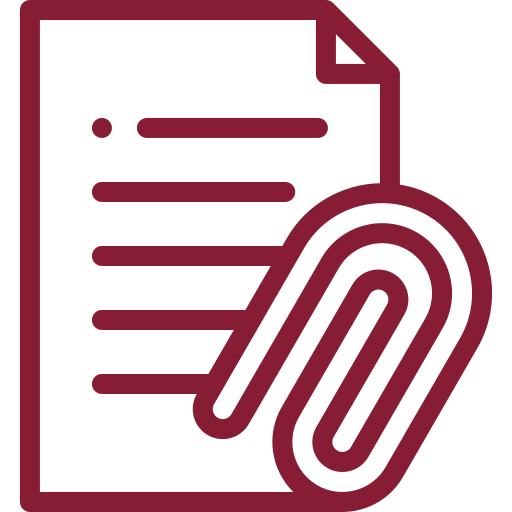- Protect Yourself From Common Type of Fraud
Your financial security is our top priority, in this campaign, we will help you protect yourself from common types of fraud.
-
Phishing Scams
Don’t click on links or download attachments from suspicious emails.
Be cautious when receiving unsolicited emails.
Check the sender’s email address and look for spelling errors or inconsistencies.
-
Phone Fraud
Don't give out your personal information over the phone unless you initiated the call to official and known phone numbers.
Be cautious when receiving suspicious phone calls.
Verify caller identity by calling the official phone number of the company or organization they claim to represent.
-
How to Protect Yourself From Fraud
Stop: before you click on a link, download an attachment, or give out your information.
Think: about whether it's safe to do so and take a moment to consider whether the email or phone call is legitimate.
Verify: the sender's identity and the legitimacy of the request before taking action by calling the organization's official phone number or visit their website.
Report: if you suspect that your personal information has been compromised, report it to the authorities and your bank immediately.
-
- Warning Sign of Fraud and Identity Theft
We take fraud prevention very seriously. Know more on warning signs of fraud and identity theft.
-
Warning Signs
Suspicious email or phone calls asking for personal information or financial details.
Unauthorized transactions on your bank statement or credit card bills.
Requests to send money or gift cards to unknown individuals or organizations.
-
How to protect yourself From Fraud
Don’t respond to unsolicited emails or phone calls asking for personal information.
Check your bank statements and credit card bills regularly to detect unexpected transaction.
Use strong and unique passwords and enable two-factor authentication if available.
-
Red Flags That Might Indicate That Your Identity Has Been Stolen
Unexpected bills or suspicious activity on your accounts.
Missing emails from financial institutions or other organizations.
Denial of credit or other financial services due to a poor credit history.
Suspicious activity on your accounts or credit reports that you didn't initiate.
-
If You Suspect That Your Identity Has Been Stolen
Contact your bank and other financial institution to report it.
Change your passwords and enable two-factor authentication for all your accounts.
Monitor your accounts and credit reports regularly to detect any unauthorized activity.
-
- Preventing Identity Theft
Your financial security is our top priority. Important takeaways and best practices to protect yourself against identity theft.
-
Create Strong Passwords
Use a combination of uppercase and lowercase letters, numbers, and symbols.
Avoid using easily guessable information such as your date of birth, name, or address.
Use a unique password for each account.
-
Avoid Sharing Personal Information
Always verify the legitimacy of emails and links before clicking.
Be wary of unsolicited emails or requests for personal information.
-
Monitor Your Accounts
Check your bank and credit card statements regularly for any unauthorized transactions.
Ensure that your contact details are up to date with the bank.
-
Protect Yourself Against Cyber-Attacks
Use anti-virus software and keep it up-to-date.
Check the URL of the website you're visiting to ensure its legitimate.
Use two-factor authentication where available.
-
- Fraud Prevention and Identity Theft "Summary and Best Practices
Here are some important tips to protect yourself from fraud and identity theft.
-
Create Strong Passwords
Use strong passwords and avoid using easily guessable information. For example: your date of birth, name or address.
-
Beware of Phishing Scams
Always verify the legitimacy of emails and links before clicking.
-
Phone Scams
Never give out personal information over the phone, especially if the caller is unknown or suspicious.
-
Monitor Your Accounts
Monitor your accounts for unauthorized transactions.
-
Recognize Warning Signs
Recognize warning signs of identity theft, such as unexpected charges or withdrawals, bills for services you didn’t sign up for, and calls from debt collectors.
-
- Cyber Security
With cyber threats becoming increasingly sophisticated, it's essential to arm yourself with the knowledge and tools necessary to protect yourself against potential risks, here are some tips on how to protect yourself against cyber-attacks.
-
Beware of Phishing
Don’t click on links or download attachments from suspicious emails.
Be cautious when receiving unsolicited emails.
Check the sender’s email address and look for spelling errors or inconsistencies.
-
Stay Protected
Use anti-virus protection software, firewalls and spyware blockers.
Making sure your computer is updated with the most recent security patches, which will significantly reduce your vulnerability to cyber-attacks and fraud attempts.
-
Stay Safe Online
Do not access or sign in on your online banking, and conduct any transaction using public computers.
Do not access your online banking and conduct any transaction using public Wi-Fi.
-
Protect Your Privacy
Hackers can use personal information on social media profiles to figure out your passwords and answer security questions in the password reset tools
Lock down your privacy settings and avoid posting things like birthdays, addresses, mother’s name, etc. Be wary of requests to connect from people you do not know.
-
- UBF's awareness booklet "Adams Fraud Series booklet"



















